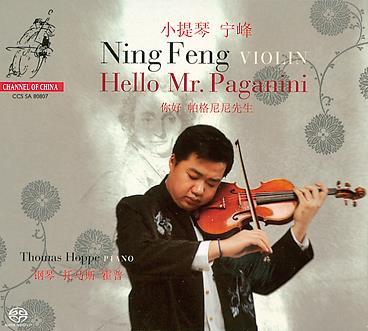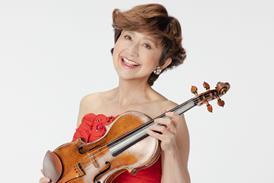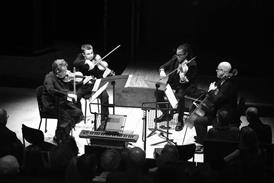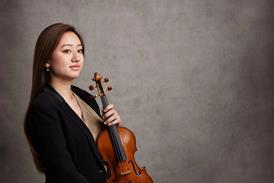
The Strad Issue: January 2008
Musicians: Ning Feng (violin) Thomas Hoppe (piano)
Composer: Paganini
Born in Chengdu, China, Ning Feng enjoyed a string of competition successes while studying variously with Weiman Hu (Sichuan), Hu Kun (London) and Antje Weithaas (Berlin), before winning the 51st Paganini International Completion in 2006. His alluring, transparent sound, coupled to a medium-fast-paced, narrow vibrato, proves the ideal vehicle for the Rossinian sparkle of Paganini’s technical chicanery. Like Salvatore Accardo, Feng keeps everything in scale, effortlessly bestriding even the notorious double-stopped harmonics of ‘Non più mesto’ with ear-tweaking purity. But whereas Accardo’s majestic nonchalance sometimes deprives the music of its ability to shock and thrill, Feng plays these intoxicating cornucopias of left-hand gymnastics with an affectionate warmth and breezy charm such that one cannot help breaking out in a broad grin at the sheer effrontery of it all.
It is not all one-way traffic, however. In the wrist-crippling, solo-violin ‘God Save the King’ Variations Feng is both dazzlingly accurate and musically compelling. Yet on this occasion it is Accardo (Deutsche Grammophon) who sounds like a man possessed, throwing himself into the fray with a fearless intensity and hurtling forward momentum that is all-engulfing. That said, I have never heard the magical Cantabile so sensitively phrased (the sul-G upward climb just before the end is magically voiced), nor the enchanting ‘Nel cor più non mì sento’ Variations thrown off with such devil-may-care exuberance (shades of the young Gidon Kremer here).
Whatever the technical pressure, Feng maintains exceptional purity of intonation, with the minimum of noises off. Above all, even in the forced-harmonic acrobatics and dancing left-hand pizzicatos of La streghe he always sounds as though he is enjoying himself enormously. Thomas Hoppe accompanies with warm-phrased discretion, and the engineering is as unimpeachable as the playing itself.
JULIAN HAYLOCK
































No comments yet